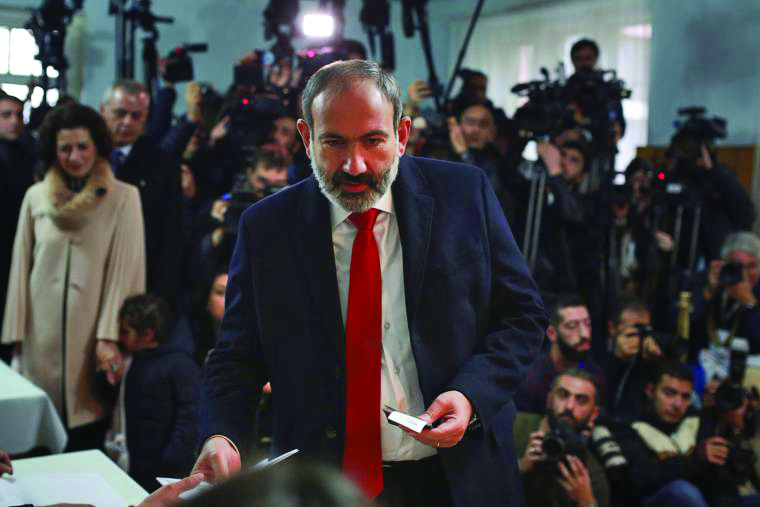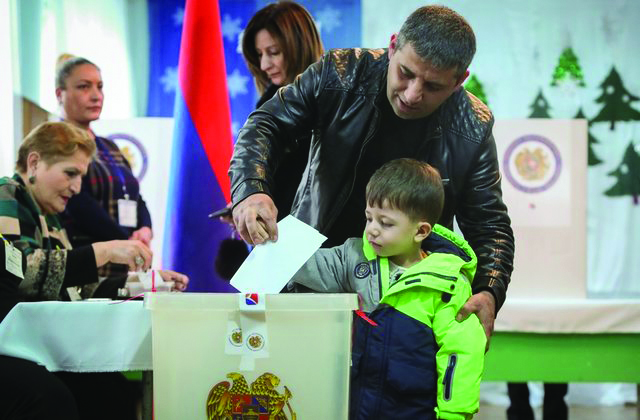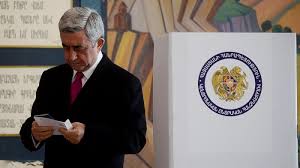YEREVAN (Combined Sources) — Armenia’s acting Prime Minister Nikol Pashinyan won a convincing victory in the snap parliamentary election on Sunday, December 9, consolidating his authority.

His bloc won more than 70 percent of the vote, the country’s election commission said.
A journalist turned politician, Pashinyan spearheaded a peaceful revolution in April.
He now has a parliamentary majority to push through his program of tackling corruption and reforming the economy. Poll turnout was low, at about 49 percent.

Historically, Armenia’s elections have been marred by fraud and vote-buying.
However, international observers from the Organization for Security and Co-operation in Europe (OSCE) said the elections had respected fundamental freedoms and were characterized by genuine competition.









